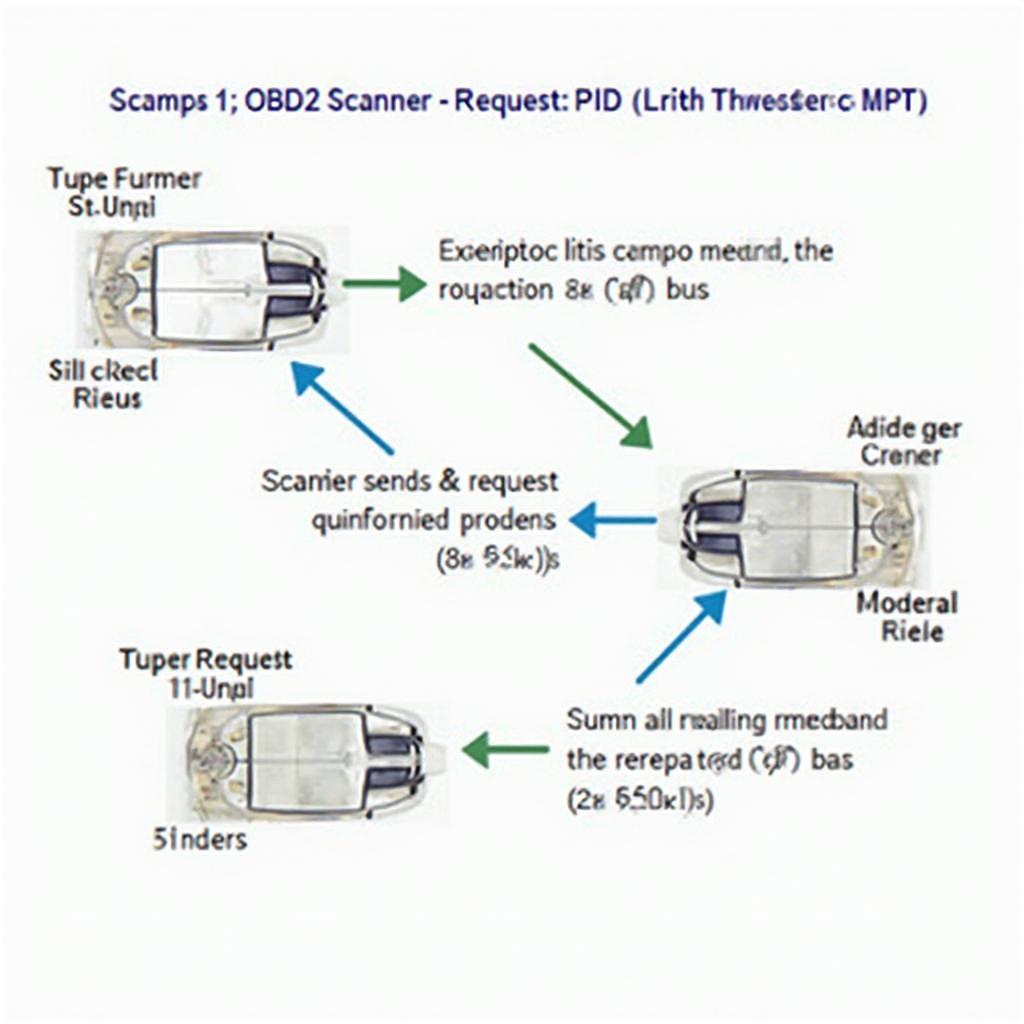Can OBD2 PIDs hurt your ECU? It’s a question that often pops up among car enthusiasts and DIY mechanics. Accessing your car’s data through OBD2 is a powerful tool, but some worry about the potential risks. This article delves into the mechanics of OBD2, explores the possibility of ECU damage from using PIDs, and provides best practices to ensure safe and effective vehicle diagnostics.
Understanding OBD2 and PIDs
OBD2, or On-Board Diagnostics II, is a standardized system that allows external devices, like scanners, to access a vehicle’s diagnostic data. This data is organized into Parameter IDs, or PIDs. These PIDs are essentially codes that represent specific pieces of information about the vehicle’s performance, emissions, and other systems. Accessing these PIDs allows you to pinpoint issues, monitor performance, and understand your car’s inner workings.
How PIDs Work
PIDs work by requesting information from the various control modules within your vehicle’s network, including the Engine Control Unit (ECU). The OBD2 scanner sends a request for a specific PID, and the corresponding module responds with the requested data. This communication happens over the vehicle’s CAN bus, a network that connects the various electronic systems.
 OBD2 PID Request Process
OBD2 PID Request Process
Can Accessing PIDs Damage Your ECU?
Generally speaking, simply reading PIDs is extremely unlikely to damage your ECU. It’s like reading a book – you’re simply observing the information that’s already there. The concern arises when you start modifying data through the OBD2 port. While some parameters can be adjusted safely, altering critical settings without proper knowledge can potentially disrupt the ECU’s programming and lead to performance issues or even damage.
Risks Associated with Modifying Data
Modifying data via OBD2 carries inherent risks. Incorrectly adjusting fuel trims, ignition timing, or other critical parameters can negatively impact engine performance, emissions, and fuel economy. In extreme cases, it could potentially damage the ECU or other components.
Safe Practices for Using OBD2 Scanners
To minimize any potential risks, adhere to these best practices:
- Use a reputable OBD2 scanner from a trusted brand.
- Avoid modifying any parameters unless you have a thorough understanding of their function and potential impact.
- Always double-check any changes you make to ensure they are within the safe operating range for your vehicle.
- If you’re unsure about any procedure, consult a qualified mechanic.
Common Misconceptions about PIDs and ECUs
A common misconception is that simply reading emission readiness monitors can somehow damage the ECU. This is simply not true. Checking these monitors just retrieves a status report, it doesn’t alter any settings.
“Can Checking My Emission Readiness Hurt My Car?”
No, checking your emission readiness monitors will not harm your car in any way. These monitors track the performance of your vehicle’s emission control systems. Reading them simply provides information about their status.
Conclusion
Can OBD2 PIDs hurt your ECU? Under normal circumstances, simply reading PIDs poses virtually no risk. The potential for damage arises when users attempt to modify critical vehicle parameters without the necessary expertise. By following safe practices and using a reliable OBD2 scanner, you can leverage the power of OBD2 diagnostics without jeopardizing your vehicle’s electronic systems. Understanding the functionality of PIDs and exercising caution when modifying data are crucial for safe and effective vehicle diagnostics.
FAQs
- What is a PID? A PID, or Parameter ID, is a code that represents specific data points within a vehicle’s diagnostic system.
- Is it safe to read PIDs? Yes, reading PIDs is generally safe and does not pose a risk to your ECU.
- What are the risks of modifying data via OBD2? Incorrectly modifying data can lead to performance issues, increased emissions, and potential damage to the ECU.
- How can I use my OBD2 scanner safely? Use a reputable scanner, avoid modifying data unless you understand the implications, and consult a mechanic if unsure.
- Can checking emission readiness hurt my car? No, checking emission readiness monitors does not harm your vehicle.
- What is the CAN bus? The CAN bus is a network that connects the various electronic control modules within a vehicle.
- Where can I find more information about OBD2? Check out our other articles on OBDFree for more in-depth information about OBD2 diagnostics and vehicle maintenance.
Need support? Contact us via WhatsApp: +1(641)206-8880, Email: [email protected] or visit our office at 789 Elm Street, San Francisco, CA 94102, USA. We have a 24/7 customer support team ready to assist you.
